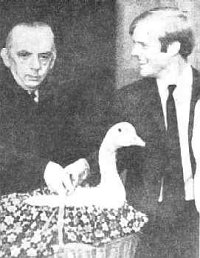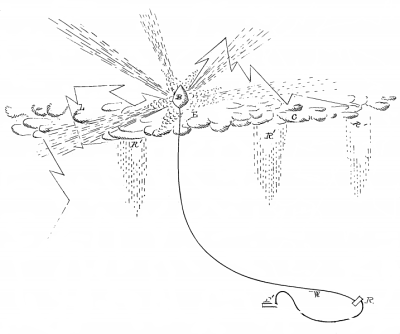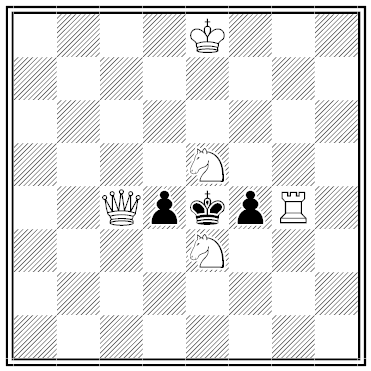Author: Greg Ross
Social Graces

Instructions on proper comportment on meeting Queen Charlotte, from a letter from Fanny Burney to her sister Esther, Dec. 17, 1785:
In the first place, you must not cough. If you find a cough tickling in your throat, you must arrest it from making any sound; if you find yourself choking with the forbearance, you must choke — but not cough.
In the second place, you must not sneeze. If you have a vehement cold, you must take no notice of it; if your nose-membranes feel a great irritation, you must hold your breath; if a sneeze still insists upon making its way, you must oppose it, by keeping your teeth grinding together; if the violence of the repulse breaks some blood-vessel, you must break the blood-vessel — but not sneeze.
In the third place, you must not, upon any account, stir either hand or foot. If, by chance, a black pin runs into your head, you must not take it out. If the pain is very great, you must be sure to bear it without wincing; if it brings the tears into your eyes, you must not wipe them off; if they give you a tingling by running down your cheeks, you must look as if nothing was the matter. If the blood should gush from your head by means of the black pin, you must let it gush; if you are uneasy to think of making such a blurred appearance, you must be uneasy, but you must say nothing about it. If, however, the agony is very great, you may, privately, bite the inside of your cheek, or of your lips, for a little relief; taking care, meanwhile, to do it so cautiously as to make no apparent dent outwardly. And, with that precaution, if you even gnaw a piece out, it will not be minded, only be sure either to swallow it, or commit it to a corner of the inside of your mouth till they are gone — for you must not spit.
“You would never believe — you, who, distant from courts and courtiers, know nothing of their ways — the many things to be studied, for appearing with a proper propriety before crowned heads,” she wrote. “Heads without crowns are quite other sort of rotundas.”
Across the Universe

During a newspaper interview in March 1966, John Lennon said that the Beatles were “more popular than Jesus.”
On August 13, radio station KLUE in Longview, Texas, organized a bonfire in which protesting Christians burned their Beatles records.
The following day, the station’s broadcast tower was struck by lightning, rendering the news director unconscious and knocking the station off the air.
(Thanks, Zach.)
“The Rich Man”
The rich man has his motor-car,
His country and his town estate.
He smokes a fifty-cent cigar
And jeers at Fate.
He frivols through the livelong day,
He knows not Poverty her pinch.
His lot seems light, his heart seems gay,
He has a cinch.
Yet though my lamp burns low and dim,
Though I must slave for livelihood —
Think you that I would change with him?
You bet I would!
— Franklin Pierce Adams, Tobogganing on Parnassus, 1913
In a Word

anserine
adj. of or resembling a goose
In 1936, Polish mathematician Stanislaw Mazur offered a live goose to the first person who could determine whether every Banach space has a Schauder basis. Thirty-seven years later, his Swedish colleague Per Enflo claimed the prize. The ceremony was broadcast throughout Poland. (Thanks, Jeremy.)
In the public gardens at Halifax, there is an eccentric goose that seems to manifest a genuine affection. Whenever a certain old gentleman, whose name we do not know, approaches the pond and calls ‘Bobby,’ the goose will leave the pond and sit beside him, and when he leaves to go home, will follow close at his feet, like a dog, to the gate, and sometimes into the street, when it has to be forcibly put back, to its manifest disgust, for it goes off to its native element twisting its tail with indignation, and giving vent to sundry discordant squeaks. The old gentleman says he has never fed it, or petted it in any way, which makes it more remarkable; but we are told by a frequenter of the gardens that about two or three years ago a man used to come there and feed this identical goose regularly, so we are inclined to think that it is a case of mistaken identity on the part of his gooseship. Anyway, it is an interesting question for ornithologists to solve, whether geese (supposed to be the most stupid of birds) have memory and can experience the sensation of gratitude.
— James Baird McClure, ed., Entertaining Anecdotes From Every Available Source, 1879
Fact and Fiction

Wonder Woman and her Lasso of Truth were created by a pioneer in lie detectors.
While a graduate student at Harvard after World War I, William Moulton Marston had developed a systolic blood pressure test to detect deception.
Twenty-five years later, while proposing a female superhero to DC Comics, he suggested a magic lasso that would force those it captured to tell the truth.
He was inspired by his wife, Elizabeth. “Not even girls want to be girls so long as our feminine archetype lacks force, strength, and power,” he said in 1943. “The obvious remedy is to create a feminine character with all the strength of Superman plus all the allure of a good and beautiful woman.”
Math Notes
14 + 50 + 54 = 15 + 40 + 63 = 18 + 30 + 70 = 21 + 25 + 72
14 × 50 × 54 = 15 × 40 × 63 = 18 × 30 × 70 = 21 × 25 × 72
6 + 56 + 75 = 7 + 40 + 90 = 9 + 28 + 100 = 12 + 20 + 105
6 × 56 × 75 = 7 × 40 × 90 = 9 × 28 × 100 = 12 × 20 × 105
Visitors
From “Love and Freindship,” a story by the 14-year-old Jane Austen:
One evening in December, as my father, my mother, and myself were arranged in social converse round our fireside, we were on a sudden greatly astonished by hearing a violent knocking on the outward door of our rustic cot.
My father started — ‘What noise is that?’ said he. ‘It sounds like a loud rapping at the door,’ replied my mother. ‘It does indeed,’ cried I. ‘I am of your opinion,’ said my father, ‘it certainly does appear to proceed from some uncommon violence exerted against our unoffending door.’ ‘Yes,’ exclaimed I, ‘I cannot help thinking it must be somebody who knocks for admittance.’
‘That is another point,’ replied he. ‘We must not pretend to determine on what motive the person may knock — though that someone does rap at the door, I am partly convinced.’
Here, a second tremendous rap interrupted my father in his speech and somewhat alarmed my mother and me.
‘Had we better not go and see who it is?’ said she. ‘The servants are out.’ ‘I think we had,’ replied I. ‘Certainly,’ added my father, ‘by all means.’ ‘Shall we go now?’ said my mother, ‘The sooner the better,’ answered he. ‘Oh! let no time be lost,’ cried I.
A third more violent rap than ever again assaulted our ears. ‘I am certain there is somebody knocking at the door,’ said my mother. ‘I think there must,’ replied my father. ‘I fancy the servants are returned,’ said I. ‘I think I hear Mary going to the door.’ ‘I’m glad of it, cried my father, ‘for I long to know who it is.’
I was right in my conjecture; for Mary instantly entering the room informed us that a young gentleman and his servant were at the door, who had lost their way, were very cold and begged leave to warm themselves by our fire. …
Thunderstruck

Daniel Ruggles patented an alarming new process in 1880 — he proposed to raise explosives into clouds “in order to precipitate rain-fall by concussion or vibration of the atmosphere.” The resulting downpour would water crops, prevent drought, forestall more violent storms, “and also purify and renovate the atmosphere during periods of pestilence and epidemics.”
In the figure and surrounding the balloon B, I have represented various dotted lines and clusters of lines, and also zigzag lines, as at L, representing lightning, the said figure being an imaginary representation of such a condition as would appear immediately after an explosion of the torpedoes, and with rain falling from the clouds C, as indicated in dotted lines at R’.
He planned to use balloons to lift the torpedoes, and “I contemplate the employment of nitroglycerine, dynamite, chlorates of nitrogen, gun cotton, gunpowder, fulminates, and other explosives.” I can’t tell whether he ever tested the invention. Presumably he did.
Urban Sprawl
The longest unhyphenated place name in the United States is Kleinfeltersville, Pennsylvania.
That’s in real life, anyway. In the 2002 film Mr. Deeds, Winona Ryder’s character claims to come from Winchestertonfieldville, Iowa.

